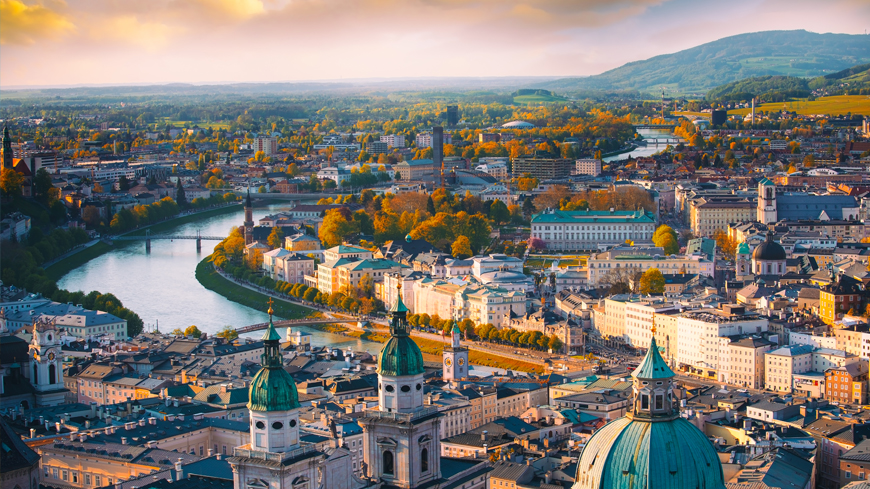Immigration to Portugal
Immigration to Portugal
Portugal is a country in southwest Europe located on the Iberian Peninsula. Portugal’s population is estimated to be over 10 million people, and Roman Catholicism is the country’s main religion, based on the most recent statistics. Portuguese is the official language.
The nominal GDP per capita in Portugal is estimated to be around 23 385 USD. Euro is the official currency (EUR). Portugal is a member of the European Union and one of the founding members of the Eurozone.
Non-EU and EFTA nationals who move to Portugal for a period of more than three months will require a long-term Portuguese residency visa in order to apply for a Portuguese residence permit later. Portugal’s immigration policy includes an international agreement with non-EU countries such as the United States, Canada, Australia, and others that allows nationals of those countries to enter and stay in Portugal for 90 days in a six-month period without the need for a visa.
Portuguese Immigration and Borders Service (SEF)
Application for Portuguese permanent residency must be made to the Portuguese Immigration and Borders Service (SEF) (https://www.sef.pt/en/Pages/homepage.aspx), which is a security service within the Ministry of Internal Affairs (MAI) responsible for border checks, restricting criminal organizations incorporating illegal immigration, and assisting with foreign person documentary evidence.
Ways to Immigrate to Portugal
A residence permit in Portugal can be obtained in a variety of ways. Investing in Portugal and obtaining European Union residency is one option for obtaining a residence permit. Another way to obtain a temporary residency permit in Portugal is to work or study in the country. To find the best solution, contact our professional consultants who can help you find the best way to get to Portugal.
Legal immigration
Immigrants must adhere to the standards set forth by the Portuguese Immigration and Borders Service in order to enter Portugal legally (SEF). Depending on your reason for visiting the country, you have a few options. Citizens of Schengen countries do not need a passport to travel from one country to another. They merely require the necessary identity documents to enter Portugal. Going to any Schengen nation without a visa is allowed if a residency permit is secured through one of the procedures indicated above. Immigrating to Europe and remaining in Portugal for a longer amount of time requires obtaining a resident visa, which can be gained by finding work in Portugal, starting a business, enrolling in school, or investing.
Cities with the highest population
By population, Lisbon is the most populous city in Portugal. Porto and Amadora are the next two most populous cities in terms of population.
From 1500 to 1700, the population of Lisbon grew at a rapid pace. Within the administrative center of Lisbon, which is only 100.05 km in size, there are 517 802 people.
According to 2019 estimates, the top five most populous cities in Portugal are:
# |
City |
Population |
1 |
Lisbon |
547 631 |
2 |
Porto |
237 559 |
3 |
Amadora |
178 858 |
4 |
Braga |
143 532 |
5 |
Coimbra |
143 396 |
Streams of people into and out of the Schengen area
The Schengen Area includes the Portuguese Republic as a member state. At the Schengen Agreement’s common borders and for travel between member states, all nations have eliminated passport and immigration controls. Schengen visas granted by other Schengen nations are accepted by member countries. Regular immigration control procedures are implemented at the exterior borders when the first entry into the Schengen area is made.
Third-country citizens with long-term visas are allowed to stay in Portugal for more than 90 days in a 180-day period. The Portuguese Immigration and Borders Service’s website (SEF) has a list of documents and justifications for getting a visa
Different Types of visa in the Portuguese Republic
If a third-country national or a non-EU citizen wishes to visit Portugal for less than 90 days, they must apply for a visa. There are various distinct sorts of visas that must be obtained based on conditions, according to the Portuguese Immigration and Borders Service (SEF)::
A-visa for Airport transit |
This visa is provided to passengers and visitors who are passing through the country by plane. |
A copy of your passport as well as your plane tickets are necessary. |
C-visa Short stay visa |
This visa is valid for a short-term stay or transit in Portugal for both personal and business travels. |
A certificate from your workplace declaring your business travel, an invitation letter, a bank statement, and a certified copy of your Memorandum and Articles of Association are all necessary. |
Limited Territorial Validity (LTV) visa |
It is only valid for travel within the Schengen area and is only given in emergency cases. |
A local medical report, a medical attestation from a Portuguese hospital or doctor certifying the date of your appointment as well as your medical condition, and a receipt for medical fees are all necessary. |
Portugal Temporary stay visa and resident visa |
These visas are issued for a variety of reasons and allow you to stay for four months or longer. |
Medical documentation for health reasons, transfer proof for travel purposes, employment proof for working in Portugal, and other documents are required for a resident visa, but self-employment or job proof, education proof, and other documents are required for a residence visa. |
Residence permit
After five years, residents of the European Union and EFTA, as well as non-EU residents, can apply for permanent residency in Portugal. Permanent residency in Portugal must be applied for through the Portuguese Immigration and Borders Service (SEF).
After 6 years of residency in Portugal, immigrants can apply for Portuguese citizenship, therefore there are numerous opportunities to live in Portugal and obtain a Portuguese citizenship and residence permit. Presently, the Portuguese Golden Investor Visa program allows for the acquisition of a residence permit based on one of the following criteria:
-
Property Investment Solution:
-
Applicants may purchase a property property worth 500 000 EUR or more, or
-
a property worth 350 000 EUR or more for properties older than 30 years or
-
located in urban regeneration areas designated for refurbishment, or
-
Acquisition of property meeting any of the above requirements with a 20% discount on the minimum amount of investment if purchased in a low-density population area (400 000 EUR or 280 000 EUR)
2. Capital Investment solution:
-
Applicants may invest a minimum of 350 000 EUR in research activities;
-
Applicants may invest a minimum of 250 000 EUR in the arts or in the reconstruction or refurbishment of national heritage projects;
-
Applicants may invest a minimum of 500 000 EUR for shares in investment funds or venture capital;
-
Applicants must create 10 or more jobs.




